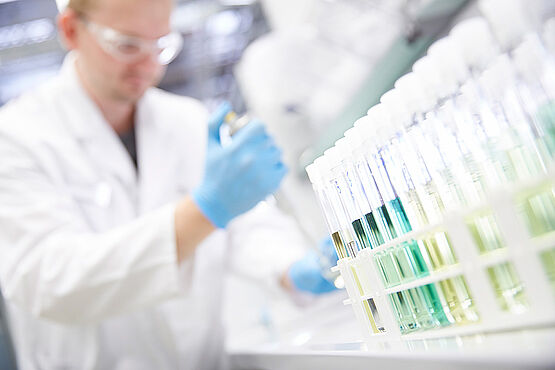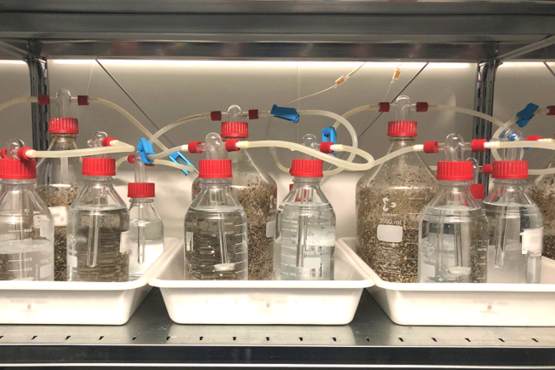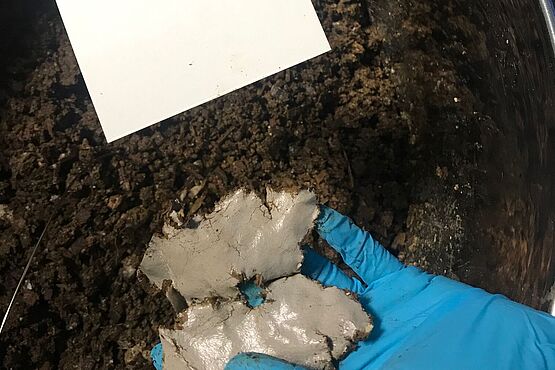Compostability tests for "OK HOME compost"
WESSLING offers laboratory compostability tests to determine whether or not products are suitable for composting.
Our laboratory is certified by two different certification bodies : OK HOME compost, OK compost INDUSTRIAL and Seedling by TUV AUSTRIAa and HOME COMPOSTABLE by DIN CERTCO.
Discover our laboratory
Discover our laboratory
The WESSLING GreenLab
The WESSLING GreenLab
Compostability tests are carried out in France, in the 70m² WESSLING GreenLab. This laboratory is one of the first to carry out these tests in France.
WESSLING GreenLab in detail
The analytical activity and documentation are entirely digital. To this end, the WESSLING GreenLab is equipped with a screen for monitoring the tests. In addition, WESSLING has set up a digital information transmission system, especially for automatic monitoring of test conditions in the tanks containing the samples.
The laboratory consists of a 30 m² area devoted to testing work and a 40 m² analysis room where the samples are placed. The latter is kept in darkness in order to comply with the composting conditions defined by the standards according to which the compostability tests are carried out.
A feature of the laboratory is that it has special sealed walls that make it possible to maintain an internal temperature of 25°C and meet the conditions imposed by the standards for home compostability and biodegradability tests in different environments.
Technical equipment
To simulate industrial composting conditions, the WESSLING GreenLab carries out biodegradation tests in an oven set at 58°C.
The laboratory also has a growth chamber for ecotoxicological tests on plants, which controls all the parameters needed for their proper development. These tests are necessary to ensure that compost containing degraded material does not affect plant development.
What tests are used to determine if a product is compostable?
WESSLING subjects products to the following successive tests. Packaging that has passed all four tests may be submitted to TUV AUSTRIA or DIN CERTCO to obtain the appropriate label.
What tests are used to determine if a product is compostable?
Current standards, certification etc.
Compostability is a recent topic in the market. You have questions and we have answers.
Existing standards
"Home compostable" or "industrial compostable": What regulations exist?
Duration of the tests
When to start testing? How much time should be allowed for testing?
Compostable or biodegradable ? What are the differences?
The two terms do not define the same thing. They should be used with care.
Home or industrial compostability ?
What are the differences?
News related to this topic
All newsYour contact
- Rémy Reboullet
- +33 6 28 05 60 80
- remy.reboullet@wessling.fr

